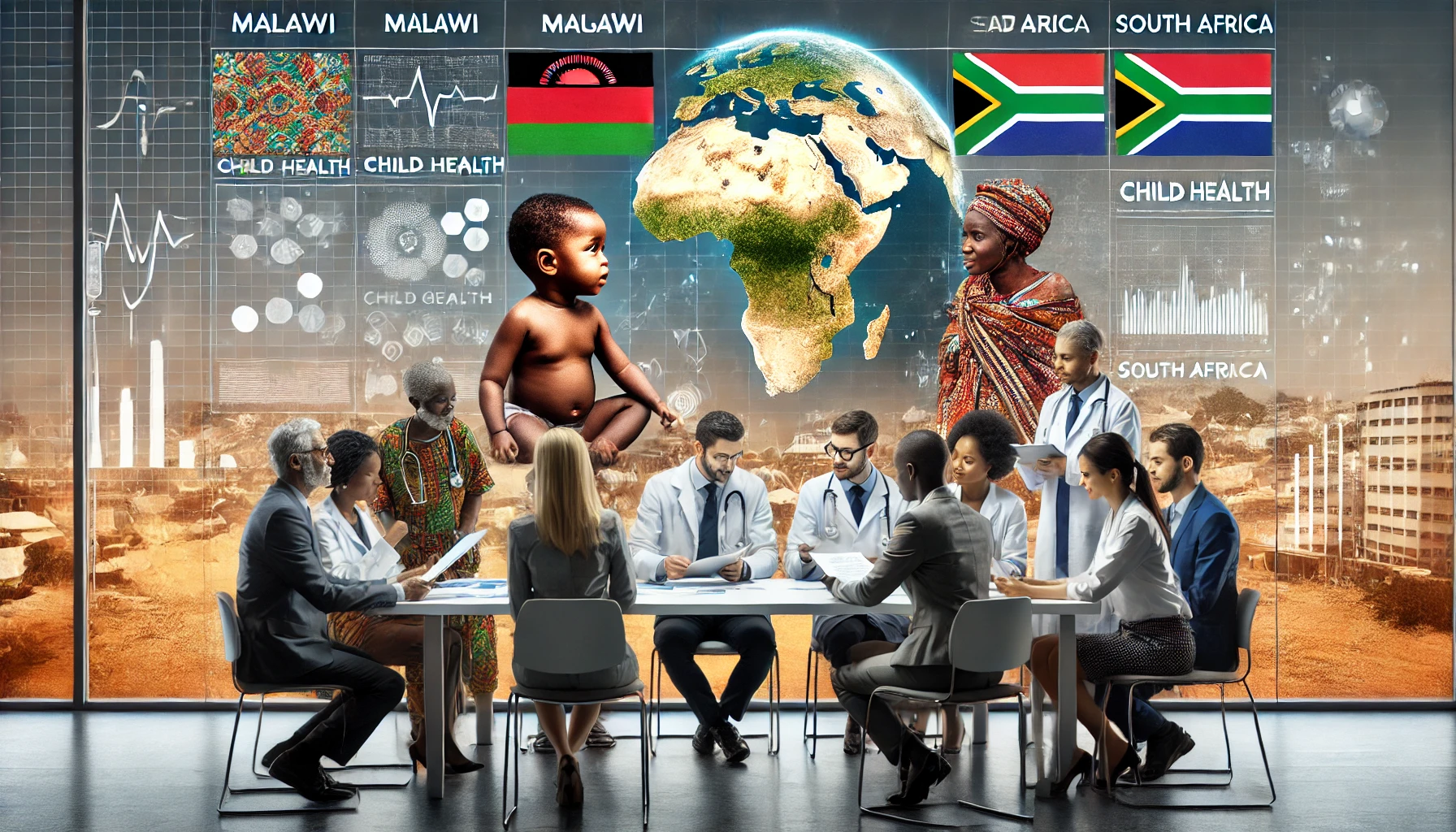Building Sustainable Health Guidelines for Africa’s Children: The GELA Project
The Global Evidence-Local Adaptation (GELA) project aims to adapt child health guidelines for Malawi, Nigeria, and South Africa by tailoring evidence-based recommendations to local contexts. The project emphasizes capacity-building and collaboration to ensure sustainable, contextually relevant guidelines for improving health outcomes.

Aiming to address outdated child health guidelines in Malawi, Nigeria, and South Africa, a team of researchers from institutions such as the South African Medical Research Council, the University of Calabar, Stellenbosch University, and Kamuzu University of Health Sciences has implemented the Global Evidence-Local Adaptation (GELA) project. Launched in 2022, this initiative is focused on adapting evidence-based recommendations tailored to local contexts to enhance child health outcomes in these countries. These efforts are crucial as outdated guidelines many of which were originally developed without considering the specific needs of each country’s health system fail to reflect the current evidence or involve adequate stakeholder participation. The guidelines are central to improving healthcare quality, standardizing care, and driving funding decisions, but they must also be relevant to the local environment to be effective. This challenge has become particularly pressing as Malawi, Nigeria, and South Africa, all transitioning towards universal health coverage, still struggle with gaps in their child health outcomes.
Adapting Global Guidelines to Local Needs
The GELA project is rooted in the understanding that health systems differ greatly between countries, and it builds on the principle that adapting existing global guidelines can be more efficient than developing new ones from scratch. Adopting or adapting existing guidelines saves time and resources, provided the recommendations apply to the local context. However, simply adopting guidelines from global sources like the World Health Organization (WHO) has proven to be insufficient in many cases, as it doesn’t account for local challenges such as feasibility, affordability, and the specific health needs of the population. In response to these gaps, GELA has undertaken an ambitious effort to ensure that child health guidelines in these three countries are both evidence-informed and tailored to their unique healthcare environments.
The GELA Project's Stepwise Adaptation Process
A key part of the GELA project is the stepwise adaptation process, based on the WHO’s guideline development framework and the GRADE-ADOLOPMENT methodology. This process involves working with national ministries and other stakeholders to identify priority health topics, systematically reviewing existing guidelines, and synthesizing new evidence where needed. For example, the national steering groups in each country conducted structured exercises to set priorities, identify gaps in national practices, and select relevant health topics for guideline development. These groups made up of policymakers, researchers, and civil society representatives, collaborated with GELA researchers to ensure the guidelines developed were contextually relevant. In some cases, where existing guidelines did not meet the specific needs of the countries, new systematic reviews were conducted to provide the necessary evidence for decision-making.
Building Local Capacity for Long-Term Sustainability
The project involved extensive capacity-building efforts aimed at strengthening local expertise in evidence-based decision-making. These efforts included workshops, accredited short courses, and hands-on training in systematic reviews and guideline development. For example, GELA offered an eight-week online course for guideline group members from all three countries, providing them with the skills to find, interpret, and apply systematic reviews in the context of child health. In addition to formal training, GELA fostered learning through practical experience, with national researchers being mentored in conducting evidence syntheses and participating in guideline development. This investment in capacity-building is seen as essential for the long-term sustainability of national guideline development processes in these countries.
Challenges in Developing Contextualized Recommendations
Despite these efforts, the process of developing contextually relevant child health recommendations has proven to be resource- and time-intensive. For many of the priority questions identified by the steering groups—such as early versus delayed enteral nutrition in critically ill children, or health worker interventions to improve infection control—there was a lack of suitable existing guidelines. As a result, the GELA teams had to conduct new evidence syntheses and economic evaluations to inform decision-making. This work required close collaboration between researchers, health economists, and guideline developers to ensure that the evidence used was both up-to-date and applicable to the specific contexts of Malawi, Nigeria, and South Africa.
Future Investment in Strengthening National Capacities
The project’s experience has highlighted the need for further investment in strengthening national capacities for guideline development. While the use of existing global standards, such as the GRADE methodology, is becoming more common in countries like South Africa, where the health system infrastructure is more developed, Malawi and Nigeria still face significant challenges. The lack of independent national guideline appraisal bodies in these countries means that the guidelines produced often lack the credibility needed for widespread adoption. By contrast, South Africa’s health department has made significant progress in establishing a robust guideline infrastructure, particularly in areas such as health technology assessment and medicine selection.
Overall, the GELA project demonstrates that building capacity for evidence-informed decision-making is a complex but vital process. The development of child health guidelines that are both relevant to local contexts and grounded in the latest evidence requires substantial resources, time, and collaboration between government, academia, and international organizations. Through its work, GELA has shown that it is possible to adapt global guidelines to meet the specific needs of low- and middle-income countries, but doing so requires long-term investment in local capacities. This investment will be crucial for ensuring that future guidelines are sustainable, relevant, and capable of improving health outcomes for children in Malawi, Nigeria, and South Africa.
- FIRST PUBLISHED IN:
- Devdiscourse










